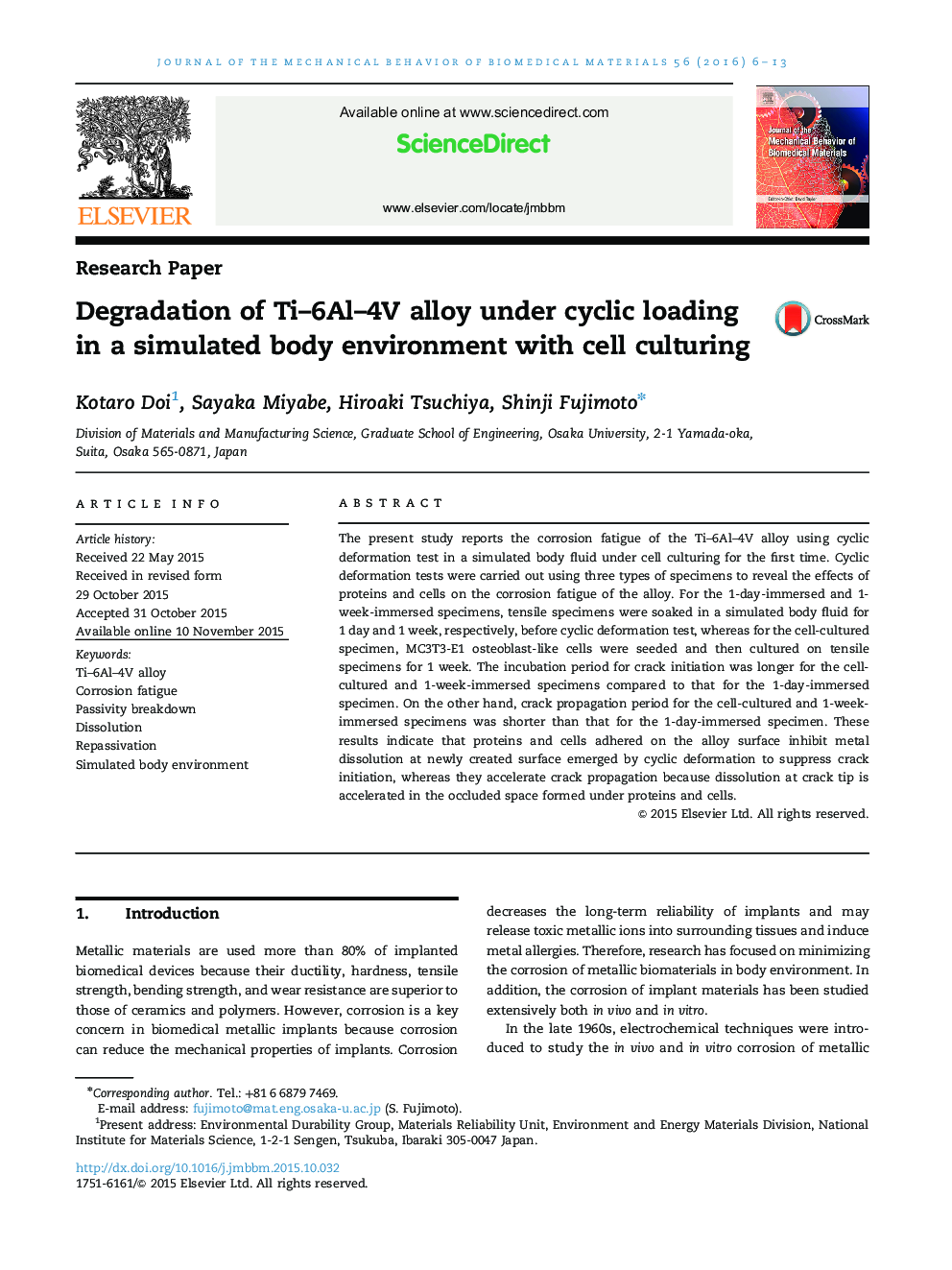| Article ID | Journal | Published Year | Pages | File Type |
|---|---|---|---|---|
| 810518 | Journal of the Mechanical Behavior of Biomedical Materials | 2016 | 8 Pages |
The present study reports the corrosion fatigue of the Ti–6Al–4V alloy using cyclic deformation test in a simulated body fluid under cell culturing for the first time. Cyclic deformation tests were carried out using three types of specimens to reveal the effects of proteins and cells on the corrosion fatigue of the alloy. For the 1-day-immersed and 1-week-immersed specimens, tensile specimens were soaked in a simulated body fluid for 1 day and 1 week, respectively, before cyclic deformation test, whereas for the cell-cultured specimen, MC3T3-E1 osteoblast-like cells were seeded and then cultured on tensile specimens for 1 week. The incubation period for crack initiation was longer for the cell-cultured and 1-week-immersed specimens compared to that for the 1-day-immersed specimen. On the other hand, crack propagation period for the cell-cultured and 1-week-immersed specimens was shorter than that for the 1-day-immersed specimen. These results indicate that proteins and cells adhered on the alloy surface inhibit metal dissolution at newly created surface emerged by cyclic deformation to suppress crack initiation, whereas they accelerate crack propagation because dissolution at crack tip is accelerated in the occluded space formed under proteins and cells.
